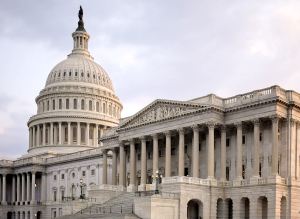As the GOP-controlled House of Representatives prepares again to vote this week on a repeal of the 2010 health law, some key Republican senators have seized on recent news developments to show their ire.
Senate GOP leaders Tuesday took issue with Department of Health and Human Services Secretary Kathleen Sebelius for soliciting money from private groups to implement the law. Noting the Internal Revenue Service scrutiny of conservative political organizations, the Republicans also said the IRS can’t be trusted to implement the health law.
“The secretary is out raising money from the private sector, people who are dependent on the government’s regulations, to help the government convince the public that Obamacare is a good measure,” said Senate Minority Leader Mitch McConnell, R-Ky.
A Sebelius spokesman said her actions were legal and that she had not solicited pharmaceutical and insurance companies regulated by the agency.
Sen. Lamar Alexander, R-Tenn., compared the secretary’s actions to the Iran-Contra scandal during the Reagan administration. Alexander is the ranking Republican on the Senate committee overseeing health policy.
Sen. John Barrasso, R-Wyo., dubbed Sebelius’ actions to implement the health care the “Sebelius Shakedown.”
“What I want to know is what she is promising those businesses that she talks to, and what is she threatening them with,” said Barrasso, chairman of the Senate Republican Policy Committee.
Barrasso also cast doubt on the ability of the IRS to implement the health law in a fair-handed manner. Among its duties are determining which Americans qualify for subsidies to help them purchase coverage and whether an individual should be fined for not having insurance.
Republicans have been fighting implementation of the law since it passed Congress on a strictly partisan vote three years ago. The House has voted more than 30 times to repeal all or part of the law, but those bills have never been acted on by the Democratically controlled Senate.
Sen. Dean Heller, R-Nev., also raised concerns about the IRS’ role in the health overhaul in a letter to Sebelius and said he would try to apply more scrutiny for the IRS’ funding to conduct health law duties. “I believe we need to address IRS funding in the health care law now, which may mean calling for a temporary suspension until it is clearer where this funding will go,” he wrote.
Barrasso, in his comments to reporters, suggested that the recent accusations will make the public skeptical that the IRS can be trusted to administer its part of the health law.
“These are the folks that are supposed to enforce the health care law,” he said. “If you go to one of the exchanges to get insurance, the form you actually send in goes to the IRS. I can’t imagine the American people are going to be delighted hearing about what misuse of power we’ve seen from the IRS and wanting to entrust them with their own health care.”







